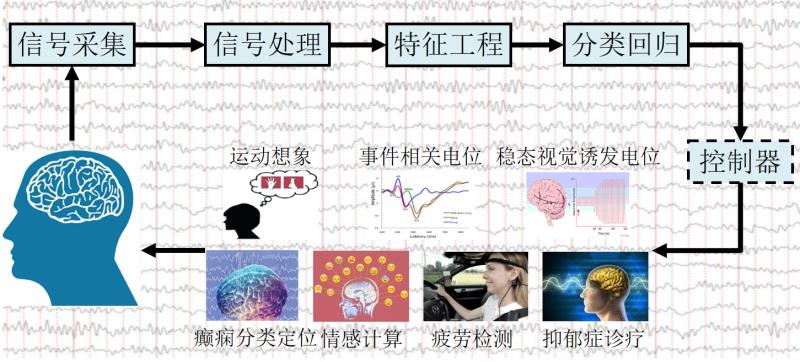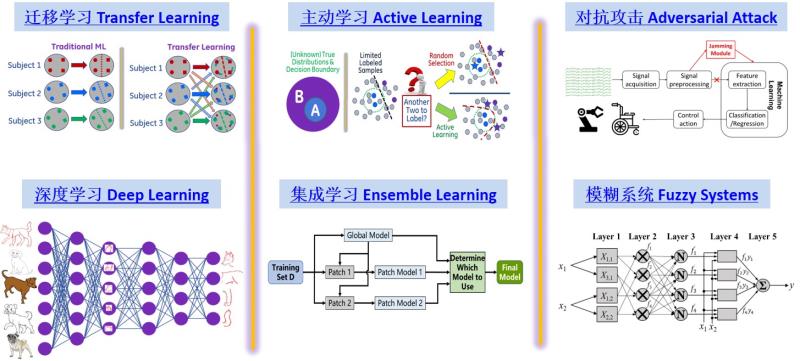Brain-Computer Interface

Brain-Computer Interface (BCI) refers to a technology that realizes information interaction and functional integration between the nervous system and external devices by establishing a direct connection path between the human brain and external devices (such as computers, robots, etc.). In short, the technology help to control the machine with the mind. Brain-computer interaction is the ultimate means of human-computer interaction. It can help the disabled to repair visual and auditory perception and motor functions, and make normal people’s work and life more healthy and efficient. This laboratory mainly studies non-invasive brain-computer interfaces, including signal processing and machine learning technologies to improve system accuracy and ease of use, counterattack and defense technologies to improve system reliability and security, and its intelligent medical applications.
Machine Learning

Machine learning is an important part of artificial intelligence technology. Through machine learning, computers can learn how to learn and automatically analyze and obtain rules from data, and use the rules to predict unknown data. Our laboratory mainly do researches on transfer learning, active learning, deep learning, integrated learning, counterattack and fuzzy systems and other technologies for brain-computer interface emotional computing and intelligent medical treatment.
Affective Computing
Intelligent Control
Perceptual Computing & Decision Making
Patents
Thesis
Awards and Honors
















